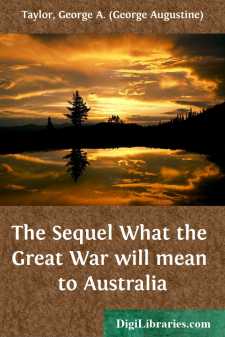Categories
- Antiques & Collectibles 13
- Architecture 36
- Art 48
- Bibles 22
- Biography & Autobiography 813
- Body, Mind & Spirit 142
- Business & Economics 28
- Children's Books 17
- Children's Fiction 14
- Computers 4
- Cooking 94
- Crafts & Hobbies 4
- Drama 346
- Education 46
- Family & Relationships 57
- Fiction 11829
- Games 19
- Gardening 17
- Health & Fitness 34
- History 1377
- House & Home 1
- Humor 147
- Juvenile Fiction 1873
- Juvenile Nonfiction 202
- Language Arts & Disciplines 88
- Law 16
- Literary Collections 686
- Literary Criticism 179
- Mathematics 13
- Medical 41
- Music 40
- Nature 179
- Non-Classifiable 1768
- Performing Arts 7
- Periodicals 1453
- Philosophy 64
- Photography 2
- Poetry 896
- Political Science 203
- Psychology 42
- Reference 154
- Religion 513
- Science 126
- Self-Help 84
- Social Science 81
- Sports & Recreation 34
- Study Aids 3
- Technology & Engineering 59
- Transportation 23
- Travel 463
- True Crime 29
Our website is made possible by displaying online advertisements to our visitors.
Please consider supporting us by disabling your ad blocker.
The Sequel What the Great War will mean to Australia
Categories:
Description:
Excerpt
CHAPTER I.
Winged!
It was the second day in February, 1915.
I'll not forget it in a hurry. That day I fell into the hands of the German Army. "Fell," in my case, was the correct word, for my monoplane was greeted with a volley of shots from some tree-hidden German troops as I was passing over the north-eastern edge of the Argonne Forest.
I was returning from Saarbruck when I got winged. Bullets whizzed through the 'plane, and one or two impinged on the engine. I tried to turn and fly out of range, but a shot had put the rudder out of action. An attempt to rise and trust to luck was baulked by my engine losing speed. A bullet had opened the water cooler, and down, down the 'plane glided, till a clear space beyond a clump of trees received it rather easily. I let the petrol run out and fired it to put the machine out of use. Then a rifle cracked and a bullet tore a hole through my left side, putting me into the hospital for six weeks.
That forced idleness gave me plenty of time for retrospection.
I lived the previous energetic five months over and over again. I had little time before to think of anything but my job and its best possibilities, but the quietness of the hospital at Aix la Chapelle made the previous period of activity seem a nightmare of incident.
I remember how surprise held me that I should be lying wounded in a German hospital—I, a lieutenant in the Royal Flying Corps, who for years before the war, had actually been a member of an Australian Peace Society!
Zangwill's couplet had been to me a phrase of force:—
"To safeguard peace—we must prepare for war.
I know that maxim—it was forged in Hell!"
I remembered well how I had hung on the lips of Peace Advocate Doctor Starr Jordan during his Australian visits, and how I had wondered at his stories that Krupp's, Vicker's, and other great gun-building concerns were financially operated by political, war-hatching syndicates; that the curse of militarism was throttling human progression, and that the doctrine of "non-resistance" was noble and Christianlike, for "all they that take the sword shall perish by the sword."
I remembered how in Australia I had grieved that aviation, in which I took a keen interest as a member of the Aerial League, was being fostered for military purposes instead of for that glorious epoch foretold by Tennyson:—
For I dipped into the future far as human eye could see,
Saw the vision of the world and all the wonders that would be,
Saw the heavens filled with commerce, Argosies of magic sails,
Pilots of the purple twilight, dropping down with costly bales.
I remembered I felt that the calm of commerce held far more glories than the storm of war; that there was no nobler philosophy than:—
"Ye have heard it said, an eye for an eye, and a tooth for a tooth; but I say ... resist not evil; but whosoever shall smite thee on thy right cheek, turn to him the other also. If any man take thy coat, let him have thy cloke also."
Then came the thunderclap of war; and in the lightning flash I saw the folly of the advocacy of peace....


